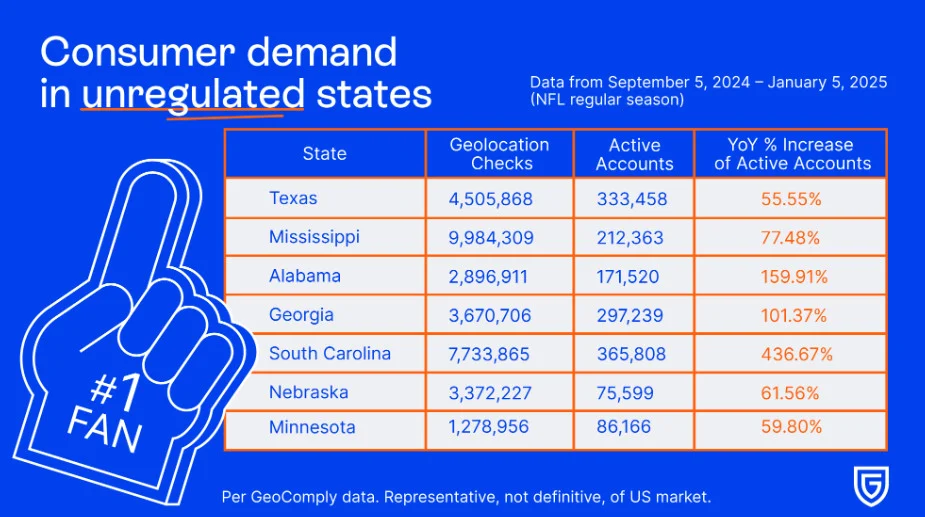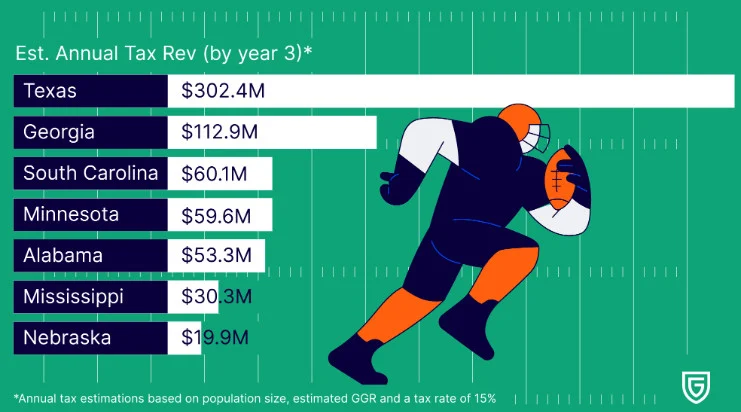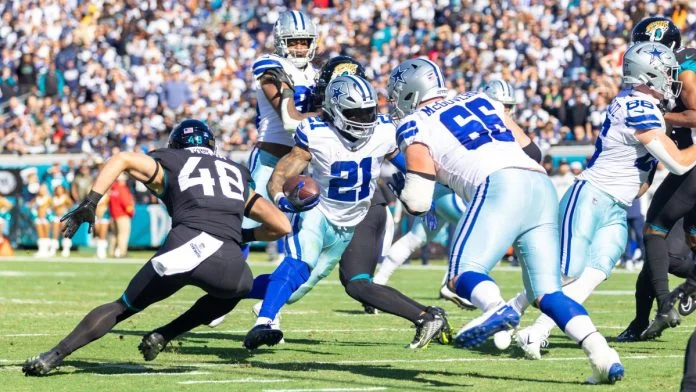New data from geofencing specialists GeoComply has illustrated just how much people in states that don’t offer regulated online sports betting are trying to access sportsbooks.
A report published by the firm on Wednesday looked at seven unregulated online sports betting markets: Alabama, Georgia, Minnesota, Mississippi, Nebraska, South Carolina and Texas.
Using its PinPoint proprietary technology, GeoComply determined there were more than 33 million geolocation check requests from computers and mobile devices in those seven states during the NFL regular season from Sept. 5, 2024, to Jan. 5, 2025.
Mississippi, which currently offers retail sports betting but not digital wagering, led the way with nearly 10 million checks. That state was followed by South Carolina with more than 7.7 million, Texas with 4.5 million and nearly 3.7 million in Georgia.
In addition, all seven states saw significant year-over-year increases in the number of active sports betting accounts.
Some states saw exponential rises, most notably South Carolina’s massive 437% increase, no doubt due in part to North Carolina launching sports betting last March. GeoComply wrote that the data “provides clear evidence of how legalized sports betting in one state can influence consumer behavior in neighboring states.”
Alabama and Georgia’s active account totals also more than doubled.

“This data underscores the substantial unmet demand for legal [online] sports betting in these states,” said GeoComply in a release.
“The demand seen during this past NFL season shows no signs of slowing as we head into the playoffs and the Super Bowl in February. Early trends from legal markets reveal significant increases in activity compared to last year’s playoffs.”
GeoComply advocates for legalization
What this shows, asserts GeoComply, is that there is “a compelling story of untapped potential” for the septet of states.
The firm added that the activity in unregulated states proves that legalization would generate vast amounts of state tax revenue and protect consumers from the dangers of gambling with unregulated sportsbooks.
For instance, GeoComply projected that by year three of legalized online sports betting, and based on the minimum tax rate of 15% that was advocated for by the National Council of Legislators from Gaming States, Texas could reap more than $300 million in tax revenue.

Some of the seven states monitored by GeoComply are already considering sports betting legislation or are likely to do so at some point in 2025. Minnesota, for example, is expected to discuss legalization again this year and is tipped by some observers as one of the best bets to launch regulated online sports betting.
“With each of these states preparing to consider sports betting legislation in their 2025 legislative sessions, the time is ripe to examine the demand and the opportunities that legalization can bring,” added GeoComply, who would stand to benefit from such legalization by working with licensed sportsbooks in those states.
“As lawmakers prepare for the 2025 legislative sessions, the data is clear: demand for legal sports betting is undeniable, and the benefits are far-reaching,” concluded the release. “It’s time to bring the protections and opportunities of a regulated market to states still on the sidelines.”



